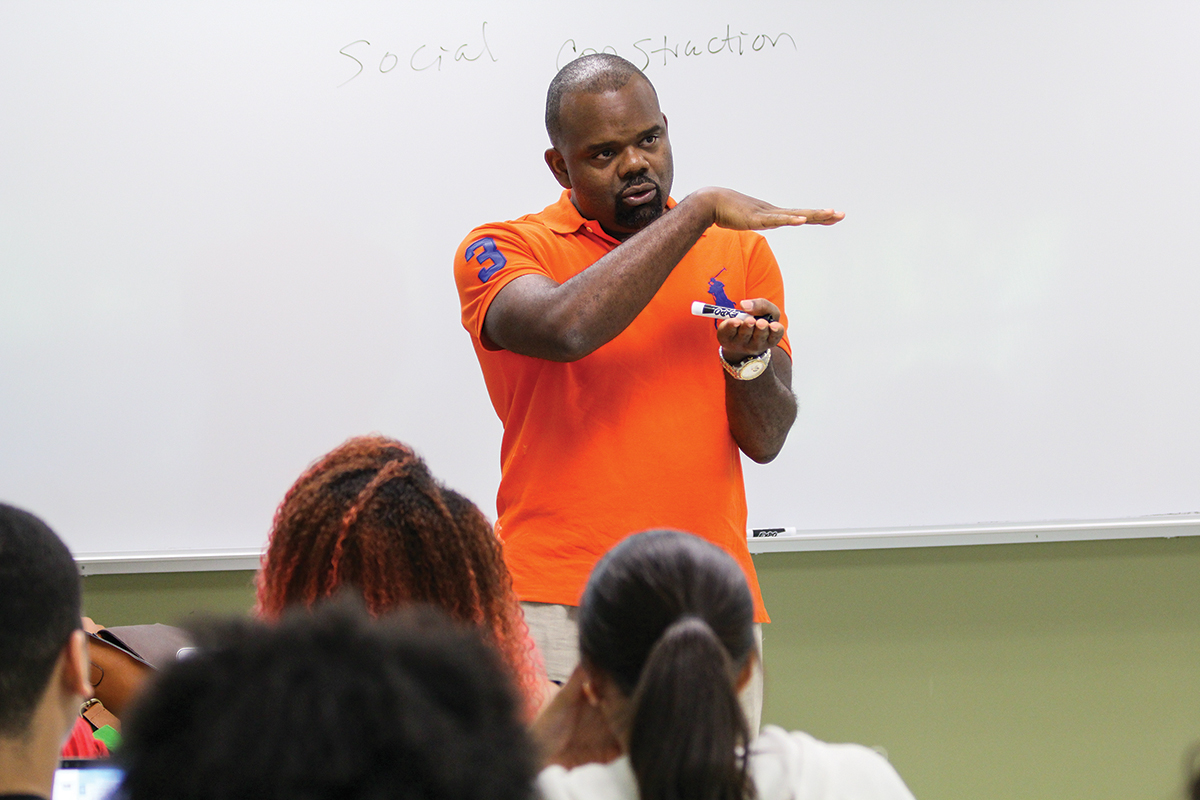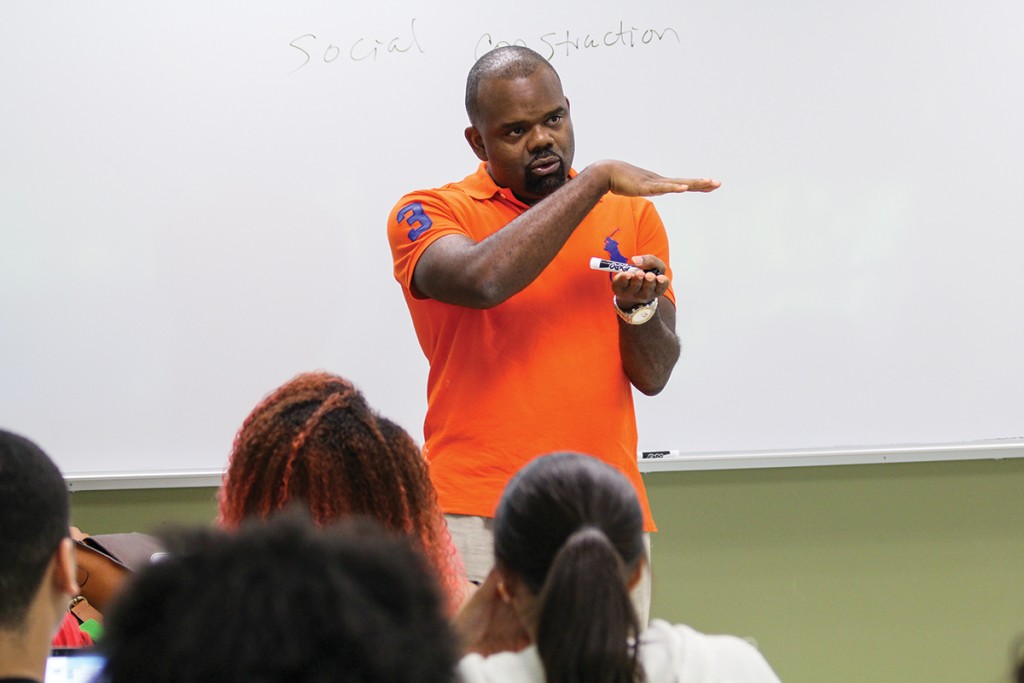

What started out as a mass movement following the controversial killing of 17-year-old Trayvon Martin has become the bedrock of a new era of dialogue among college students nationwide. Africana Studies (AAS) 290, also known as the Black Lives Matter class, is a two-part course offered this semester that aims to contribute to the growing wave of national conversation by informing students about the movement and its historical antecedents.
The course is taught by Director of Africana Studies David Ikard, who was motivated to educate students on the movement’s background following last year’s campus protests in the wake of the police-related killing of Michael Brown.
“I was asked to support the students and their cause and I was more than happy to do so,” Ikard said. “It became very clear to me that there was a desire for the students to understand the history and politics of the Black Lives Matter movement. I wanted to provide them [with] a cultural, intellectual and political context through which they can understand that movements like these have happened before.”
As a professor in African-American literature, Ikard prepared a curriculum in which he could address the “issue of white supremacy” while highlighting racial disparity. According to its syllabus, the class aims to introduce students to a number of theorists and activists while analyzing entries culled from an extensive list of works designed to elucidate U.S. race relations from statistical and personal viewpoints.
“We talk about everything from James Baldwin essays to whiteness studies while seeing that a lot of the things that students are experiencing now are unfortunately not terribly new, [these things are] actually part of a much more longstanding conversation about black liberation in the U.S.,” he said.
Antonio Mercurius, a sophomore majoring in health science, took the course the first semester it was taught in the fall of 2015 and recounted his experience.
“This was a very different course from everything else I’ve taken,” Mercurius said. “This was one of the first classes where I was challenged to think critically. It truly taught me how to argue on a whole different perspective.”
The Black Lives Matter movement has made itself present numerous times on campus in the form of panels, rallies and marches in response to the police-related killings of African Americans across the country. Since then, subsequent campus task forces and initiatives have garnered mixed responses from portions of the student body who have feared that the movement was anything but inclusive.
“Somehow, it seems as though any sort of challenge to whiteness is somehow threatening, but the irony is that the Black Lives Matter movement isn’t about overthrowing white supremacy but simply about responding to abuse toward the black community,” Ikard stated. “Anyone who’s concerned that the movement or class is exclusionary is clearly not aware of the whole point. Some people called Dr. King a hatemonger, but today we see how he is revered as a civil rights pioneer. For anyone who’s afraid of the course because of its name, I would invite them to take the course to participate in the intellectual labor of looking into the politics and culture of this issue.”
Having taken part one of the two-part Black Lives Matter course, Antonio Mercurius emphasized the need to encourage further dialogue.
“The course really engages what it is like to be black in America and the struggles African Americans have gone through and continue to go through today,” Mercurius stated. “I recommend people take this course because it will not only promote critical thinking but also encourage empathy.”
Flyers promoting the class have been spotted all across campus, detailing the course’s goal of engaging the movement “as an extension of the civil rights movement.”
“I believe that knowledge is power and I believe that any time people are heated about this issue, they need to understand how to process their outrage and harness it to promote the kind of change that will actually bring about social equality in this country,” Ikard said.
Section Q of AAS 290, known as “Special Topics” on CaneLink, is a three-credit class currently taken by 19 students. It will be offered again in the fall semester of 2016, according to Ikard.






